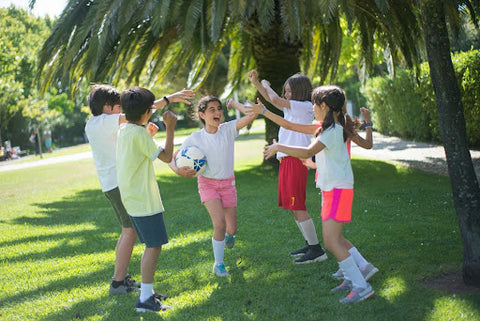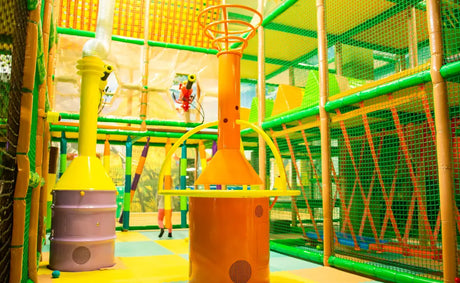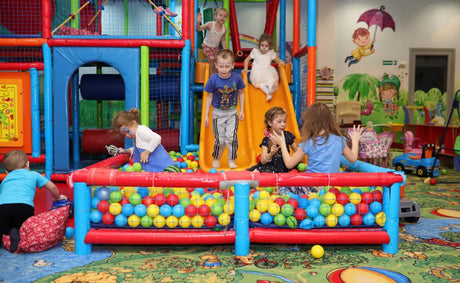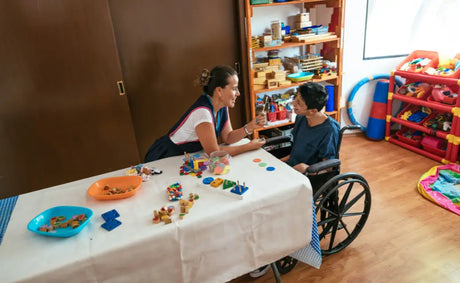Balancing academics and extracurricular activities is a key skill every student should learn. Today, doing well in both areas helps you grow personally and academically. However, finding the right balance can be tough.
Many students struggle with managing their time to the demands of schoolwork and other activities. Even with these challenges, the benefits of balancing academics and other activities are worth the effort. Students who manage their time develop strong organizational skills that are useful in both school and everyday life.
1. The Importance of Academics

Academic success should always be a top priority for students because it forms the foundation for their future education and career opportunities. It’s not just about getting good grades; it’s about building the knowledge, skills, and problem-solving abilities that are essential for life.
The benefits of doing well in school are many. High grades and a strong academic record can lead to scholarships and a better chance of getting into top colleges and universities. This, in turn, can lead to better job opportunities, as employers often look for candidates with a solid educational background.
Academics also play a big role in personal and career development. The knowledge gained from school helps students understand the world, think critically about important issues, and make smart decisions. In their careers, the skills and knowledge they gain from academic success become valuable tools, helping them excel in their jobs and make meaningful contributions to their communities.
2. The Role of Extracurricular Activities

Extracurricular activities are important for a student’s overall development. Joining sports teams, and clubs, or doing volunteer work helps you develop life skills like teamwork, leadership, time management, and problem-solving. For example, being on a sports team teaches you how to work with others, and leading a club helps build leadership and organization skills. These activities not only help you grow but also add to what you learn in school, giving you a more complete education.
Extracurricular activities also help you build a strong resume. Colleges and employers look for students who do well in both academics and activities outside of school. Being involved shows that you have a variety of skills and interests. This makes you stand out when applying to colleges or jobs and gives you an advantage in the future.
3. Challenges in Balancing Both

Balancing schoolwork and extracurricular activities can be tough, and students often face different challenges while trying to do well in both. One of the most common problems is time management. With only so many hours in a day, it can be hard to manage homework, activities, and free time. Sometimes, students have to choose between going to a club meeting or studying for a test, which can cause stress.
Another challenge is the risk of burnout. Taking on too much schoolwork or too many activities can lead to feeling stressed and tired. This can hurt a student's performance in both areas, making it harder to succeed. The pressure to do well in both can be overwhelming and without good time management and self-care, students might struggle to keep up.
There is also a chance of focusing too much on one area and neglecting the other. Some students may spend all their time on academics, missing out on other areas of life. On the other hand, focusing too much on activities can cause grades to drop. Finding a balance is important to ensure students do well in both school and extracurriculars.
4. Strategies for Effective Time Management

The first step is to manage. Students should figure out which tasks are most important, like homework, activities, or personal responsibilities. By focusing on these high-priority tasks, students can make sure they’re spending time on what matters instead of getting caught up in less important things.
Creating a balanced schedule is another important tip. Students should set aside specific times for schoolwork, activities, and personal time, making sure they don’t take on too much. For example, they can set certain hours for homework and studying, while also leaving time for sports, clubs, and relaxation.
Setting realistic goals is also crucial. Students should aim for goals that they can achieve in both school and activities, without overcommitting. This helps them work towards success without putting too much pressure on themselves, lowering the chance of burnout.
To stay organized, students can use tools like planners or apps like Google Calendar. These tools help keep track of schedules and deadlines, ensuring students don’t feel overwhelmed and can meet their goals.
5. Setting Priorities

Setting priorities is an important skill for students who need to balance schoolwork with extracurricular activities. To succeed in both areas, it's essential to put academics first. This means focusing on homework, studying for exams, and attending classes as top priorities. Once these tasks are done, students can then enjoy their extracurricular activities without worrying about unfinished school work.
It's also important to know your limits and avoid taking on too much. Joining too many clubs, sports, or projects can cause stress, burnout, and lower performance in both school and activities. By knowing how much they can handle, students can make smart choices and avoid overcommitting.
Sometimes, setting priorities means learning to say "no." While it may be tempting to accept every opportunity, students need to understand that it's okay to turn down extra commitments if they interfere with their main responsibilities. Saying "no" is a smart decision that helps keep the focus on what's most important. By prioritizing academics and choosing activities carefully, students can maintain a balanced schedule that supports both personal growth and academic success.
6. The Role of Support Systems

Support systems are very important in helping students balance school work and extracurricular activities. Getting help from family, teachers, and friends is essential for managing these responsibilities well. Family members can encourage you, help you manage your time, and create a good environment for studying.
Counselors and mentors are also helpful. School counselors can give tips on managing your schoolwork and extracurriculars, help with setting goals, managing stress, and deciding which activities to focus on. Mentors, like teachers or older students, can share their experiences and offer guidance on how to succeed in both areas.
Good communication is key to making sure you get the support you need. It's important to talk openly with your family, teachers, and friends, letting them know about your commitments and any challenges you face. This way, you can get extra help with schoolwork, understanding from a coach about a busy academic period, or support from friends during stressful times. Keeping communication open helps manage expectations and reduces the chances of feeling overwhelmed.
In short, by seeking support from family, teachers, counselors, and friends, students can better handle their academic and extracurricular commitments, leading to a more balanced and successful school experience.
7. Recognizing When to Adjust

Recognizing when to make changes is an important skill for students to keep a healthy balance between schoolwork and extracurricular activities. The first step is spotting signs that things are out of balance. These signs include constant stress, falling grades, lack of sleep, and feeling overwhelmed. If students are often missing deadlines, losing interest in activities they used to enjoy, or feeling physically and mentally drained, it may mean they have taken on too much.
It’s important for students to regularly check their commitments to make sure they’re not overloading themselves. Since life and school demands can change, students should take time to reflect and see if they need to adjust their activities to maintain balance between school success and personal well-being.
To make adjustments, students can take practical steps to reduce stress and regain control. If they’re feeling overwhelmed, they should consider cutting back on activities or reorganizing their schedule to allow more time for studying and rest. This might mean stepping down from a leadership role or reducing the number of activities they’re involved in. It’s also important to talk to teachers, coaches, and family members about their needs to get the support necessary to make these changes.
By watching for signs of imbalance, regularly checking their commitments, and making changes when needed, students can keep a healthy balance between school and extracurriculars. This helps prevent burnout and keeps them on track toward their goals.
8. Benefits of Successfully Balancing Both

Balancing schoolwork and extracurricular activities has many benefits that can help a student’s growth and future success. One of the biggest advantages is improving academic performance. When students manage their time well, they can focus better on their studies, finish assignments on time, and prepare for tests. This balanced approach lowers stress and helps them understand the material better.
Beyond school, balancing academics and activities also helps students grow personally and build important social skills. Joining clubs, playing sports, or volunteering allows students to develop leadership, teamwork, and communication skills. These activities help students explore their interests, boost confidence, and learn how to work well with others. The skills they gain from extracurriculars are just as valuable as the knowledge they get from school.
Balancing both schoolwork and extracurriculars also prepares students for the future. In college and careers, managing multiple responsibilities and staying organized is key to success. By learning to balance their commitments early, students become more resilient, adaptable, and ready to handle challenges confidently. These skills not only help with school and work but also lead to a balanced and successful life.
Conclusion
Balancing schoolwork and extracurricular activities is important for students who want to do well both in and out of the classroom. As we've discussed, finding this balance helps improve academic performance while also supporting personal growth and developing social skills. By focusing on schoolwork and also being involved in activities, students can build a strong foundation that will benefit them in many areas of life.
Students should use strategies like time management, setting priorities, and using support from others to handle their responsibilities confidently. These approaches will help them manage their tasks, avoid burnout, and enjoy the advantages of a balanced life.
In the long run, learning to balance school and activities will bring lasting benefits. It will prepare students for the challenges of college and future jobs, giving them the resilience, flexibility, and skills needed to succeed. By achieving this balance, students not only set themselves up for academic success but also a well-rounded, fulfilling life.
Need some school supplies? Browse our collection of back-to-school essentials to find everything you need for a successful year ahead.

















